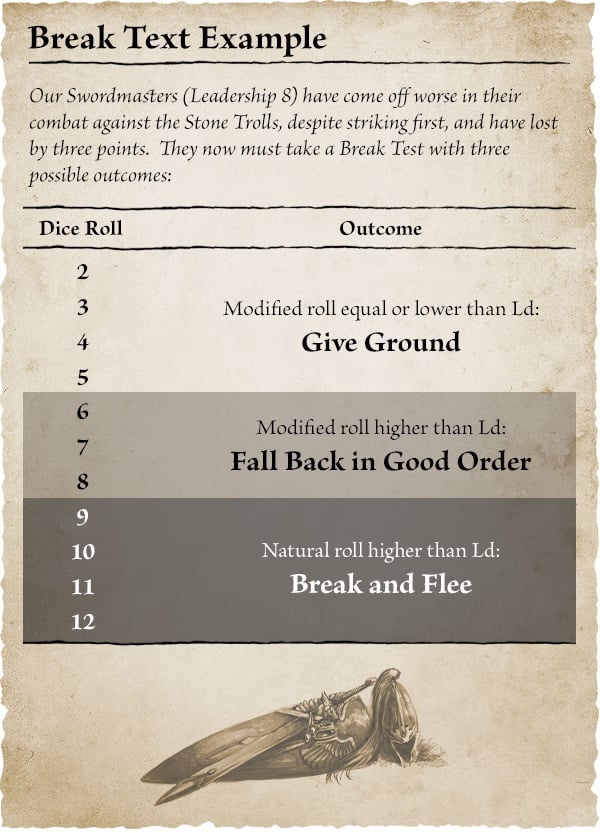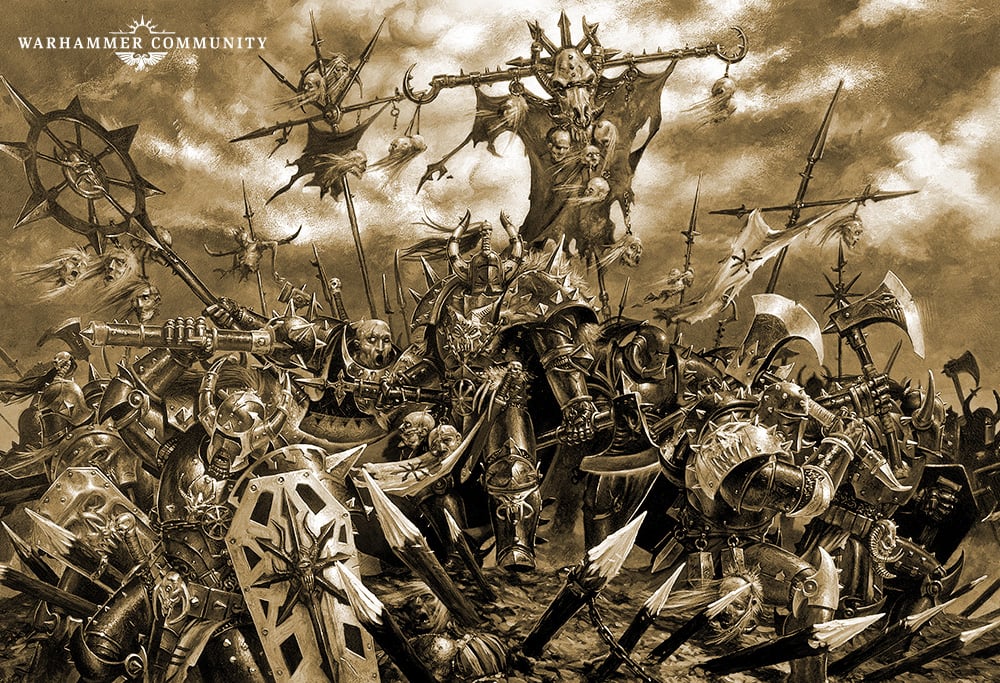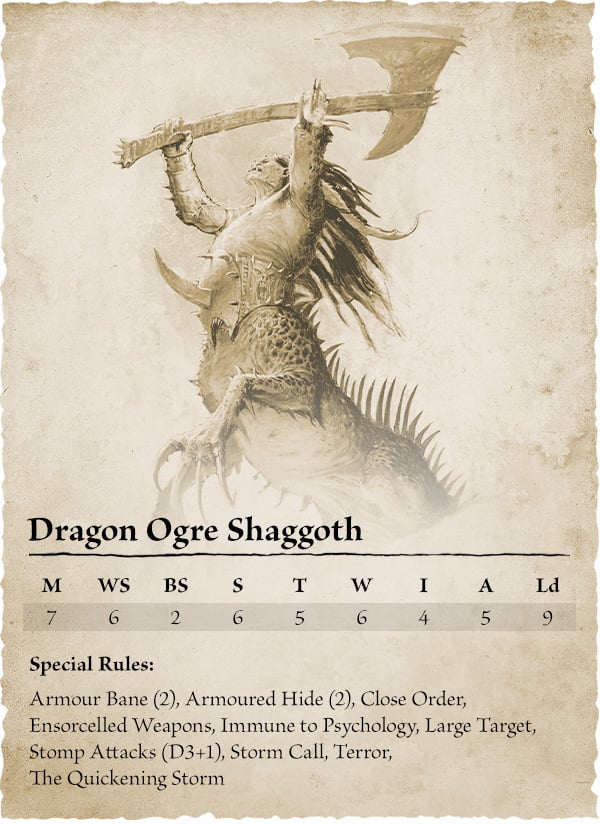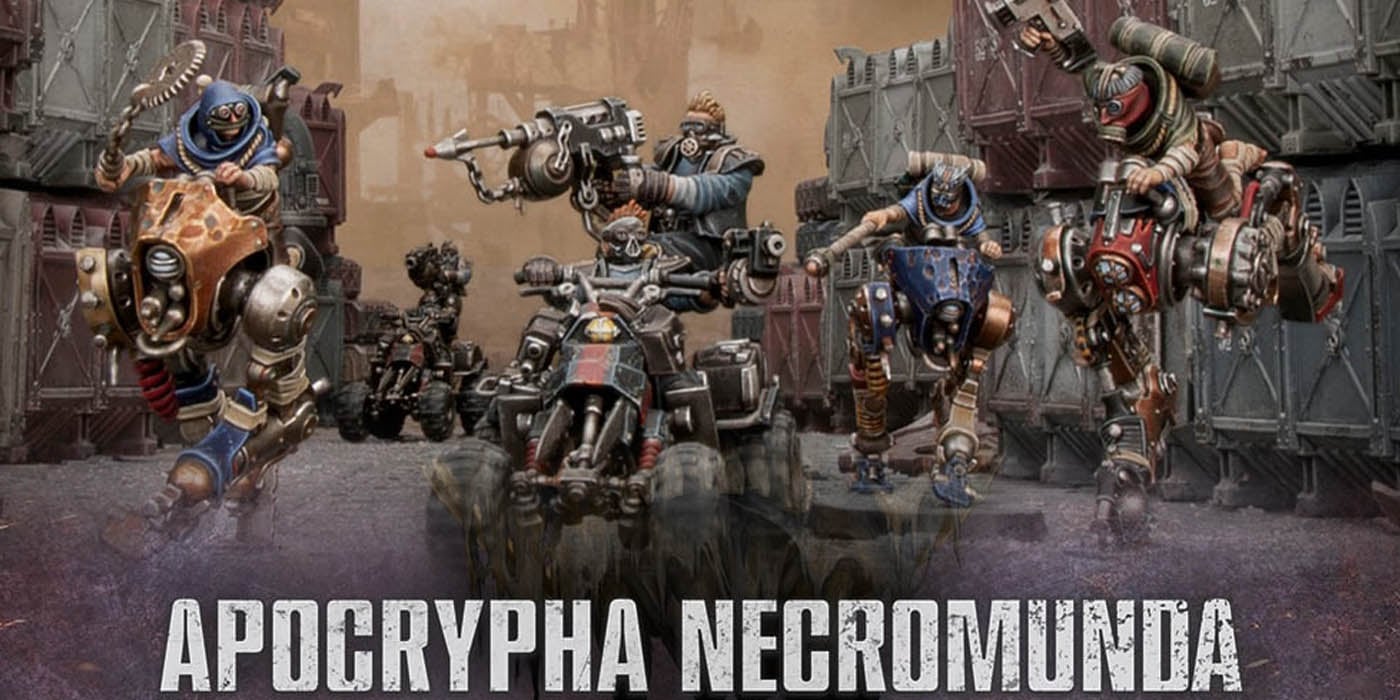Warhammer: The Old World – Morale and Psychology Explored
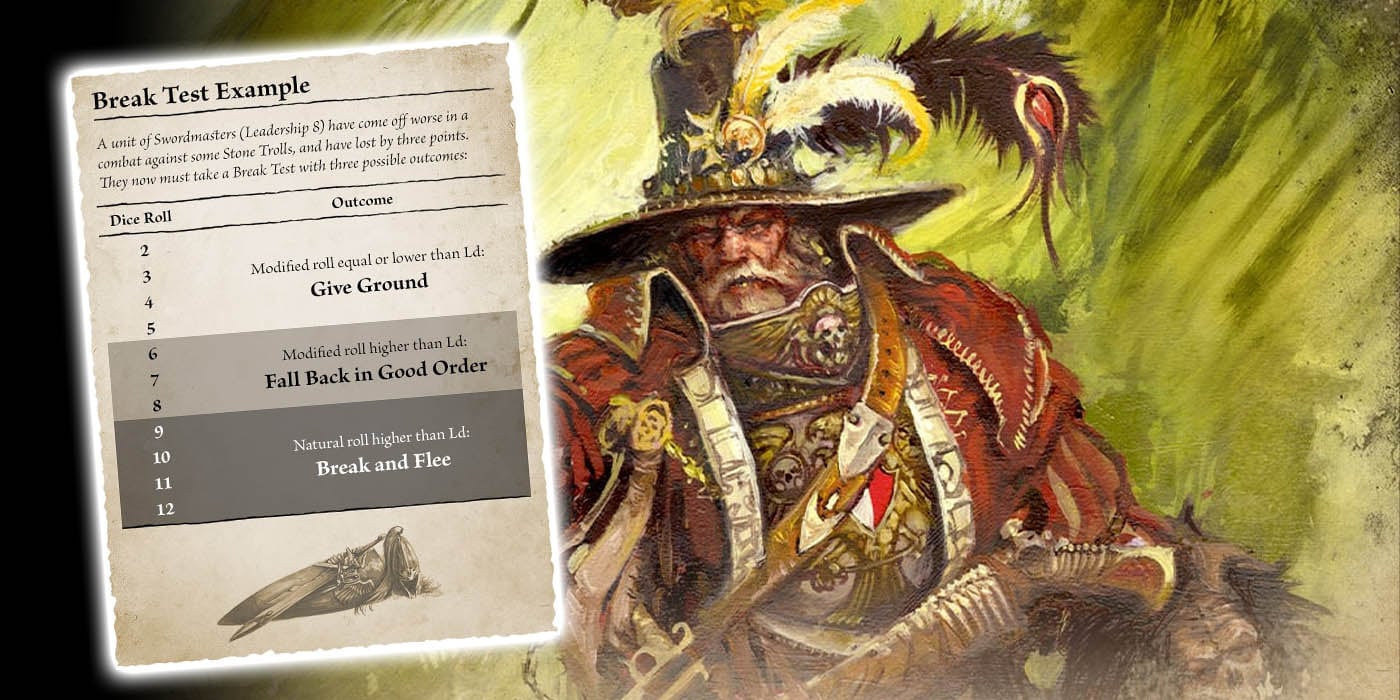
The Old World is revisiting the Morale and Psychology rules. Time to find out what’s new and what’s returning for Warhammer!
We got a sneak peek at the Morale checks from the Combat Phase breakdown already. This time around we’re getting more info on what those differences are and we’re dabbling in the Psychology rules, too.
Morale in the Old World
Break and Flee – This is the classic “turn and run” result you might remember. Essentially, the losing unit runs the opposite direction from whatever caused it to break and flee in the first place. If there’s multiple units, then it’s the one with the greatest unit strength. The fleeing unit rolls 2D6 and runs that many inches away. They only pivot to avoid impassable terrain. If any part of the unit crosses a battlefield edge, they are destroyed. Additionally, the enemy unit has the option to give chase as well. They get to roll 2D6 and if they catch the fleeing unit then the fleeing unit is also destroyed.
There’s some new twists with this as well. If the fleeing unit happens to run into another enemy unit, they aren’t destroyed — instead they take additional wounds (which may destroy them). If they run through a friendly unit, that’s actually not that bad now. Other than the fact that their friends are now in line to take the follow-up charge from the enemy…
Fall Back in Good Order – The unit has still lost the fight but they aren’t ready to run for dear life…yet. They still roll 2D6, but discard the lower of the two results. Additionally, they get to rally and reform at the end of the move, ready to receive the follow-up OR perhaps ready to counter-charge themselves!
Give Ground – This is the best possible outcome if you’ve lost the combat. The loser simply slides back 2″ to create some space between them and their foe. The victor can still choose to follow up if they choose and the combat continues next turn.
Personally, I like that the results have more of a gradient of loss instead of just “Run. Did you escape? Good. Otherwise, you’re destroyed.” This means units will get to stick around in combat more and might even be able to valiantly hold the line.
Psychology Returns!
All the classic psychological effects are back – Fear, Terror, Stupidity, Animosity, Frenzy, Unbreakable, Stubborn and Hatred. While in previous games, Psychology was separate from the rest of the Universal Special Rules, it’s all now found in one place in the Core Rulebook. We’ll be looking at other USRs in a future Almanack, but there’s time this week to see how a few of these work.
While these classics are back we don’t have the full scope on how each of them will work just yet. However, we do know how three of them will be implemented in The Old World.
Fear – “If an enemy with lower Unit Strength wishes to charge a Fear-causing unit, it must first take a Leadership test, or its charge will fail.” And that’s just one aspect. If you’re already in combat with a Fear causing unit, you have to pass a Leadership check each round or suffer a -1 to hit penalty.
Terror – “If you’re charged by a beast with this effect, you have to take a Leadership test just to be able to declare a charge reaction – if you fail, you flee.” On top of that Terror also applies a -1 penalty to leadership which means breaking then becomes easier.
Now, I’m sure some fans of Old School Warhammer Fantasy are wondering if Terror also applies Fear as well — like it used to. Frankly, we don’t know! I would think it would be a safe bet based on the profile of the Dragon Ogre Shaggoth they showed:
Notice that even though the Special Rules are basically a keyword system that only Terror is listed. We’ll have to wait and see how this turn out in the end.
Frenzy – “this gives models in a unit an extra Attack, and also immunity from Fear and Terror. A Frenzied unit, however, must always charge if able to and can never choose to Flee from a charge.” So Frenzy is a good defense against some of the other effects. But it’s got it’s own downsides with the forced charges.
A Magical Teaser
And finally, there will be spells that impart these effects onto units:
Battle Lust seems appropriately named for what it grants the target unit. Frenzy and Hatred could be a powerful combo — especially if you can opt to not cast it on a unit that doesn’t want to be forced to charge later.

